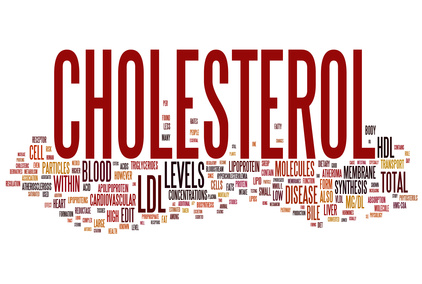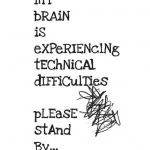It’s not always convenient in time and money to get away to a spa to relax. So try our stress-relieving tips that have you relaxed and feeling better in no time.

1. Meditate
A few minutes of meditation each day can help ease anxiety. Anxiety attacks are real. It is when you feel ‘out of control’ of a situation. Regular meditation will make you more resilient to stress by altering the brain’s neural pathways. It is important to note that if you’re taking anxiety medication, you should not stop until you have mastering the art of medication, feeling totally relaxed with yourself and CONSULT YOUR DOCTOR!
So, let’s try this: In a chair or on the floor, sit up straight with both feet on the floor. Close your eyes. Focus your attention on reciting — out loud or silently — a positive mantra such as “I am at peace”, “I love my life” or “I love myself.” Place one hand on your belly to sync the mantra with your breaths. Ignore any distracting thoughts and only focus on your chants. Feel the difference? You will feel yourself in control again.
Get a FREE book on Meditation. Stress-Proof Your Brain: Meditations to Rewire Neural Pathways for Stress Relief and Unconditional Happiness.
2. Take Deep Breaths
Do you know most people only do shallow breathing all day. Take a 3-minute break and focus on your breathing. Sit up straight, eyes closed and slowly inhale through your nose. Feel your breath start in your belly and work its way up. Reverse the process as you exhale through your mouth. It’s as simple as inhaling, hold your breath to count of 7, then exhale as if you were blowing up a balloon (make sure the balloon is fully blown, lol). Now relax. Feel the difference. This technique also helps clear your lungs, since most people only do shallow breathing. I use this technique when I pass someone who is smoking to clear my lungs.
“Deep breathing counters the effects of stress by slowing the heart rate and lowering blood pressure,” psychologist Judith Tutin, PhD, says. Dr. Tutin is a certified life coach in Rome, GA.
3. Be In the Moment
Slow down. Take a few minutes to focus on only one thing or movement at a time. Notice how you feel when you are walking, how light you feel because you are focused on only one thing. That’s what ‘in the moment’ means. Just one thing at a time. I spend so much of my time trying to do everything at once until I work myself into a frenzy, only to have to sit, rest to get myself together. Now I take everything slow and savor every moment! When you spend time in the moment and focus on your senses, you should feel less tense.
4. Reach Out to Others
With all the opportunities of working from home, self-employed, or simply retired, it can make you feel isolated. Make sure you are linked into a social network to help with stress. Talk to people either on the phone or go out to exchange what’s going on. Feel free to share your ‘stress-related’ problems with someone else. You might just find a whole new perspective on what you think is a problem that may not be at all.
FREE ebook: Healing Anxiety For Good: How to get rid of anxiety and regain your peace of mind (Better Mental Health and Wellness)
5. Tune In to Your Body
Now this may seem a little strange, but it works. Lie on your back, or sit with your feet on the floor or your bed. Mentally scan your body to get a sense of how stress affects it each day. Start at your toes and work your way up to your scalp, noticing how your body feels. Be aware of places you feel tight or loose. For a few minutes, imagine each deep breath you take flow to that part. Repeat the process as your focus moves up your body. If you are paying close attention to sensations you feel in each body part you will feel a positive improvement. You can Tune In with this process daily if necessary.
6. Decompress
Place a warm heat-wrap around your neck and shoulders for about 10 minutes. You can microwave your wrap for about 3 minutes to get it warm or use a gel wrap. Close your eyes and relax your face, neck, and back muscles. Remove the wrap, and use a small ball (I personally used a medium size ball just smaller than a kickball) or foam roller to massage away tension. TIP: Use the winter hand warmers to get instant heat and relief while on-the-go.
Place the ball between your back and the wall or hard surface like wood chair. Put some strength into leaning on the ball, and hold gentle pressure for up to 15 seconds. Then move the ball to another spot, and apply pressure. This should relax you and get some kinks out. This is personal knowledge we learned from our Physical Therapists after a car accident.
7. Laughing Really Works
Relax and lighten up by chatting with someone who makes you laugh or smile. A good belly laugh doesn’t just lighten the load mentally. It lowers cortisol, your body’s stress hormone, and boosts brain chemicals called endorphins, which help your mood. I have a friend who I talk to almost daily just to talk about something funny and ‘get our laugh on’. Sometimes we end up just laughing at our laughs. Try this, it really works. Picture two senior citizens laughing on cordless phones! NOW LAUGH!
FREE eBook: Happiness Starts Now. Kindle Edition. Hurry while it’s still FREE.
8. Listen to Music
Research shows that listening to soothing music can lower blood pressure, heart rate, and anxiety. Create your own playlist of songs or nature sounds on your mobile device like the ocean or water falls, and focus on the different sounds. Many of my colleagues like to work off steam by singing loud in the shower or simply dancing to an oldie, however, I have personally found it raises my blood pressure more. It’s simply your choice.
FREE: Music: An Art and a Language [Kindle Edition]
9. Move – Just Move!
All exercise can ease your stress and anxiety by helping the brain release feel-good chemicals and by helping your body learn to deal with stress. In a neighborhood where there are no lease laws, I am not able to always go for a quick walk. However, I take full advantage of a two-story house and go up and down my steps at least 4 times a day (running errands, of course). Because of a neck injury years ago, I daily do frequent stretching exercises like head rolls and shoulder shrugs. Don’t forget if you have a sedentary job, just get up, MOVE and STRETCH!
10. Be Grateful
Keep a gratitude journal or several (one by your bed, one in your purse, and one at work) to help you remember all the things that are good in your life. When you are grateful and actually count your blessings it automatically cancels out negative thoughts and worries.
Use these journals to savor good experiences like a child’s smile, a sunshine-filled day, and good health. Don’t forget to celebrate accomplishments like mastering a new task at work or a new hobby.
When you start feeling stressed, spend a few minutes looking through your notes to remind yourself what really matters.
If you don’t have a lot of time to write in a Journal just stop, close your eyes and remember the notes you did put in there. It will get you to a point where you can be thankful.
Free eBook: Be the Genius You Were Born To Be: 10 Secrets That Will Transform You Into A Superhuman (Health, Abundance, Happiness & Positive Thinking) [Kindle Edition]

 
Please follow our BLOG for updates and more health and fitness information.
THANK YOU TO OUR LOYAL FOLLOWERS!
'If you liked this post, say thanks by sharing it.'

 Follow
Follow
 Info@jomaine.com
Info@jomaine.com



